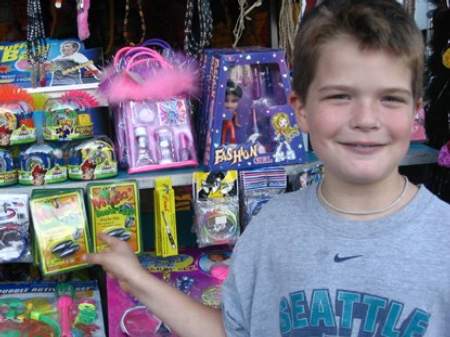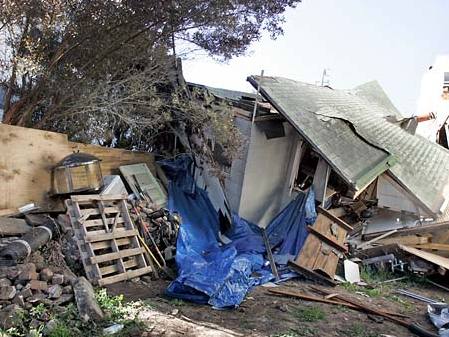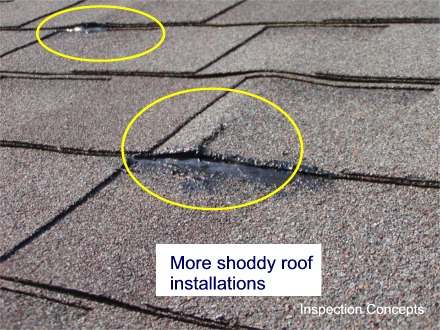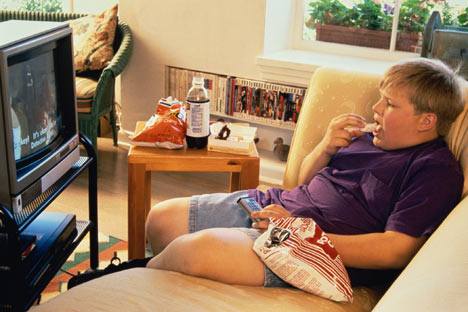When are we being penny-wise and pound foolish? The risks of being the “wrong kind” of frugal.
My kids love Thomas the Tank Engine and all the other wonderful, affordable toys that are made available to today’s children. As a parent, I remain bewildered by the incredible variety of cheap, entertaining toys and children’s products that are within a few dollar’s reach. But not long ago, Thomas the Tank Engine toys were recalled. And ever since the whole Mattel incident where the company apologized to China for the product recalls of recent days, I’ve wondered whether this signified deeper problems with the toy industry, involving the outsourcing of work to keep costs low. This made me think about how lower costs and cheaper prices could lead to higher risks to safety and other problems.
Is our thirst for cheaper products and services leading us to take on additional risks with the stuff we buy and use? Why are businesses cutting corners with product design and manufacturing? How eager are we (businesses and consumers alike) to make foolish choices in order to save money?
By the same token, we consumers frequently cut corners with our purchasing decisions. The examples I’m illustrating below show how we’ve traded care, caution and quality for the opportunity to save more money. At the minimum, the monetary tradeoffs we make can end up eventually costing us more. At most, it could cost us something that we cannot replace.
What follows are some extreme cases of being penny-wise but pound foolish.
How Cheap Choices Can Lead To Trouble… And More Expense
In an attempt to practice thrift, many people implement these behaviors:
Going for home-based cosmetic procedures.

Cosmetic surgery in itself is scary enough. The professionally done procedures do yield some really good results as above. However, I’ve heard of some common scams that involve cheap plastic surgery offered by unlicensed or untrained personnel and bogus specialists. Check out this news article on such a scam. What I cannot believe is that there are people who are foolish enough to undergo procedures at a quack surgeon’s unkempt home: all for the tidy sum of a few hundred dollars.
Buying cheap products such as toys and items that no longer meet standards.

As consumers, there are things we can do to protect ourselves, which are actually within our control. We need to be more intelligent consumers and not just patronize products for their “price”. For instance, we should carefully inspect the stuff we buy prior to buying it. As caregivers to children, we need to be hyper-vigilant about what we buy our kids, scrutinizing items for dangerous parts (e.g. magnets that can come off, long strings in clothing, small parts and pieces, non-standard cribs). The more we understand what we buy, the better for our safety. Awareness saves lives.
Doing it yourself when you can’t do it yourself.

There are many talented do-it-yourselfers out there, and all I can say is: more power to you! But there is a whole segment of society that is downright unable to swing a hammer. It’s one thing to cut your teeth on assembling IKEA products but it’s another to attempt to install wiring in your house when you don’t know the difference between the red and the yellow wire. Tread carefully if you still want to go this route.
Skipping essential insurance.

It’s a sad state of affairs that 47 million Americans do not have health insurance. 20% of Californians don’t have health insurance. However, are people skipping insurance because they really cannot afford it? Or is it a question of priorities vs perceived risk? If one’s priorities include spending on vices, impulse buys, non-essentials and luxuries while shunning insurance coverage because of a “devil-may-care attitude”, then this is a grave mistake. Why take a risk by being under-insured or carrying no insurance for your home or automobiles? The risk of accidents and illness is very real and the belief “that it’ll never happen to me” has been disproven many times.
Hiring low cost but questionable service providers.

Have you opted to save money by hiring unlicensed workers? Many of us are guilty of this, and this practice has never been more rampant than in California, where it’s just too easy to hire a “body” or two to do any job for you. It’s harder to gauge the value of service quality than it is to measure product quality as standards are not as clear cut in the service industry. So think twice before paying for cheap labor, because there’s usually a reason and a catch when rates seem unreasonably low.
Skimping on quality food to save money.

Many frugal people I know save impressive amounts of money on food, but unfortunately, that thriftiness is misplaced. That’s because they’ve decided to forego the healthier and more expensive food items for the cheaper, convenient kind. And cheaper food is cheap for a reason — if they’re processed and quick, they’re not good for you. In the long term, expenses can be far higher when one ends up having to address the consequences of a lifetime of bad eating habits and a poor diet. Other risky choices include careless ingestion of old, expired or even free food and other edible materials which can lead to food poisoning or worse.
This just scratches the surface of things people often do frequently and regularly to cut costs and save money. But is it all worth doing? I’m not so sure. This is about making the right product and service choices for ourselves, taking into consideration things beyond our pocketbook.
What we need to ensure is that when we aim to save ourselves a bundle, that we know clearly what the consequences are and the risks we take when doing so. It’s a good thing that most of the time, there is minimal or no risk involved by going cheap.
Copyright © 2007 The Digerati Life. All Rights Reserved.

{ 10 comments… read them below or add one }
Like my philosophy goes, there is pros and cons for every action. One has to balance things out and moderate their actions. Is time U.S. have some production facilities as we are mainly a service country right now.
I have to agree on the food – in my family we have a saying that “you can’t waste money on your health.” Buying organic and healthy is not cheap, particularly if you eat meat, but I figure it will save more in the long run.
I think the US long ago became accustomed to cheap and easy, and it’s going to sap the health and vitality of the country in the long run. The answer is to consume less but higher quality. However, that’s easier said than done – I would buy a Bic over a high-quality pen that will last for 50 years based on price, probably. That mindset has to change. I think that’s the REAL definition of frugality – a return to high-quality living instead of high-quantity living.
Excellent points. Frugality is a virtue but there is such a thing as “saving too much”, do you agree? Especially if the decision to save is made unwisely — e.g. against something that could potentially lead to more expense, risk or danger down the road.
Brip Blap, I particularly like your comment about the real definition of frugality: “a return to high-quality living instead of high-quantity living.” I definitely subscribe to consuming less but that of higher quality.
On the clothing side of things, the biggest false economy I see is people only buying cheap things that are poor quality and don’t last long.
Not only are these more expensive on a cost-per-wear basis, but there can be other consequences too. For example, cheap shoes can do your feet a lot of damage; and being poorly presented at work is terrible for your career.
That doesn’t mean I advocate spending lots of money on trendy items — but it is wise to invest in a few good quality classic items that last for years and mix well with cheaper items to make lots of great outfits.
Plus it’s got to be good for the environment to own fewer better quality clothes than to toss things out every few months!
I agree on the food too. I tried to shop into those huge-and-cheap groceries and it was a total failure in term of frugality. It is true that they offer the lowest price on the market but on junk food! Fruits and vegetables are usually not that great in those places.
I really want this homemade bike!
We went without health insurance for more than a decade because of financial constraints and because we were young, healthy, and it seemed like a waste of money. We looked at it like this, spending $400 a month on medical insurance was essentially ‘betting’ that some accident or illness would befall us that would cost us MORE than the $4800 a year we’d be spending on the insurance. We bet that it wouldn’t – and it didn’t – so for more than a decade we muddled through by paying full price for doctor’s office visits when needed, and using over-the-counter medicines to treat the occasional sinus flare up. When or jobs got better (with supplied insurance instead of being encouraged to pay for our own out of pocket) we got insurance again.
It’s not impossible to live without health insurance when you’re in your 20’s and 30’s, and in fact might be the better financial choice.
Great post! You make some smart, insightful comments that remind us to balance money with long-term goals. It’s all about perspective.
I heard an “expert” on the news commenting on the price of toys. He said that if the regulations needed to keep toys safe (e.g., lead inspection, etc), a toy that costs $6.99 might end up costing $7.99. That’s an obscenely small amount if we’re talking about the safety of our kids. In fact, having a room full of toys isn’t necessary; cut the number in half and kids still do pretty well. So if parents buy half as many toys, they can cost a bit more, right?
I’m a big believer in putting good food in your body. It impacts your health, personal appearance, and mood. It is more expensive, but like you said, the long-term health benefits far outweigh the few additional grocery dollars.
As for insurance, something to keep in mind is that insurance companies have pre-negotiated prices with in-network providers. If you get a high deductible health insurance policy, you’ll get the discount at your doctor visits (perhaps 50% off). If you have a serious medical issue, the health insurance saves you from catastrophe. Isn’t that was health insurance was intended to do?
This is a great post. Summarized, you need to be frugal, not cheap.
We’ve definitely found that buying fresh food is much more expensive than buying processed foods. We do buy fresh as much as possible, but find that we do get quite a bit of processed food for convenience. We try and balance it out, and do make most of our food from scratch, but there are times when convenience (and price) win out.
Speaking about cheap products… It’s a deep thought, so it’s not possible to say that all cheap products are made with poor quality.
But with toys…yes, we have met with several problems, when we tried to get certificates for them. After that we decided to avoid low cost toys. I am personally better off buying a high priced toy for my children, than to risk giving them some sickness.